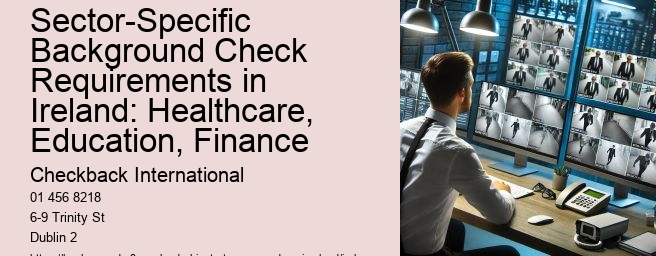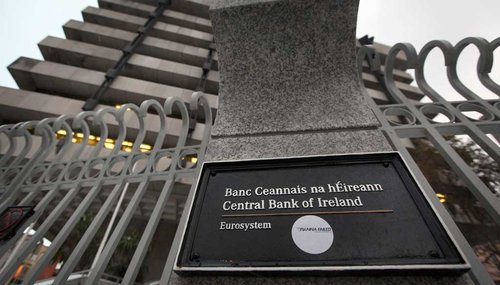

Employment vetting can be done for positions outside of Ireland through services like the European Criminal Record Check (ECRC), which covers 26 EU states.
When checking backgrounds across international borders, Irish screening providers use specialized cross-border verification services to examine candidates who have lived or worked in other countries.
Frequently Asked Questions
Their work with leading UK recruitment teams enables efficient management of complex vetting requirements while maintaining compliance in this regulated sector.
This method helps Irish organizations compete in cross-border tenders and makes vetting simpler.
Conclusion
Background checks in Ireland are a key part of modern workforce screening, operating under strict regulations and professional standards. The Private Security Authority oversees these processes while data protection laws help maintain proper balance between thorough verification and privacy rights.
This process lets Irish applicants get criminal record checks from 26 EU member states using one application.
Practical Aspects of Vetting Process: Timeliness and Costs

This broad employment screening helps Irish businesses meet security standards and regulatory requirements while making informed recruitment choices.
Security service providers must follow compliance requirements for their operational approval, which affects hiring practices, business reputation, and industry quality levels across Ireland's security sector.
Checkback International helps with documentation tasks, offering staff support during business hours for questions and submissions.


Send general questions to info@checkback.ie or reach customer support at support@checkback.ie. Call the office at +353 (0) 1456-8218.

The regulation requires organizations to be transparent about stored data and gives individuals rights to access, correct, or delete their information, protecting personal data throughout its use.
4.Price: Good service at reasonable rates matters. Clear pricing helps organizations plan expenses.
The components also cover date of birth verification, bankruptcy checks, and specific screenings for regulated sectors like financial services and aviation.
Tenant ScreeningHow Long Does a Background Check Take in Ireland? Timelines Explained
A background check in Ireland involves reviewing a person's criminal, financial, or personal records to assess their suitability for a role or position.
The duration can vary but typically takes between 1-2 weeks, depending on the type and complexity of the check.
Garda vetting is a specific type of background check required in Ireland for individuals working with children or vulnerable adults, involving checks against police records.
Yes, you must obtain consent from the individual before conducting any background checks in Ireland.
Not for all employees, but certain sectors such as healthcare and education may require comprehensive checks.
It includes checking for any criminal convictions or offences recorded against the individual.
Yes, individuals can request their own background checks in Ireland for personal review or to prepare for employment screenings.
Skipping background checks can lead to hiring unsuitable candidates, which may result in legal and reputational risks.
Yes, police clearance is a general criminal record check, while Garda vetting is specific to roles involving vulnerable groups and includes more detailed investigations.
You can request transcripts or degrees directly from educational institutions or use third-party services that specialize in educational verifications.
Information about spent convictions, certain types of personal data, and other protected characteristics under GDPR is off-limits unless specifically relevant and lawful to access.
International checks may involve additional complexities such as different laws, languages, and longer processing times.
No, background checks do not affect your credit score as they do not involve a credit inquiry that would impact the score.
Best practices include securing data in compliance with GDPR, limiting access to authorized personnel, and ensuring data is stored for only as long as necessary.
It depends on the industry and role, but typically every 2-3 years or when significant changes occur in the individual’s role or responsibility.
While not specific by law, many IT positions require checks due to access to sensitive or proprietary information.
GDPR regulates the processing of personal data, ensuring that background checks are conducted in a lawful, fair, and transparent manner.
Yes, but it must be done lawfully and with the individual’s consent, considering the relevance to the role.
Penalties can include fines, legal actions, and reputational damage, depending on the severity of the non-compliance.
Remote work has increased the importance of thorough background checks, especially for those in positions of trust or handling sensitive data.
Best practices include conducting similar checks as for permanent staff, especially if they have access to sensitive or critical areas.
Ensuring fairness involves following consistent procedures, obtaining consent, and allowing candidates to dispute inaccuracies.
Yes, it’s recommended to tailor background checks based on the specific risks and requirements of each position.
Signs include transparency about services, compliance with legal standards, positive reviews, and strong data protection practices.
Handling involves assessing the relevance to the job, discussing findings with the candidate, and considering legal and ethical implications.